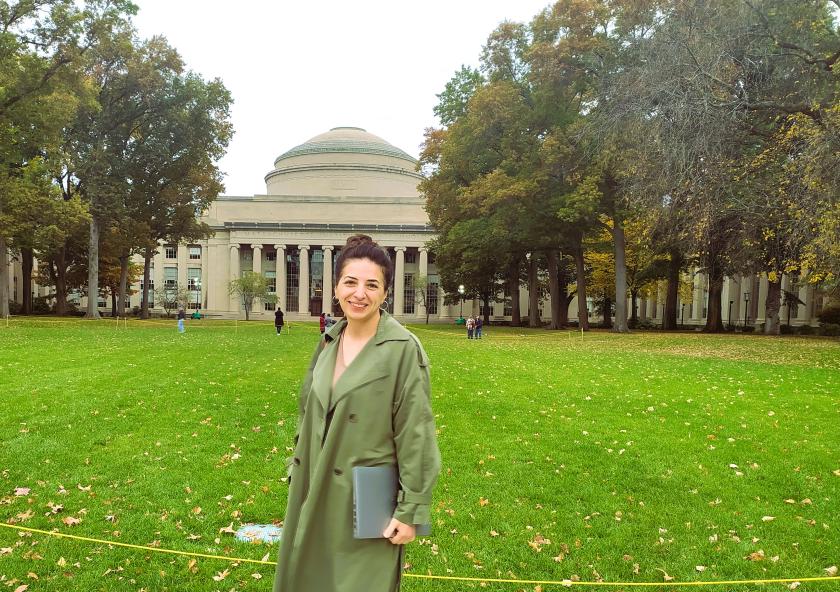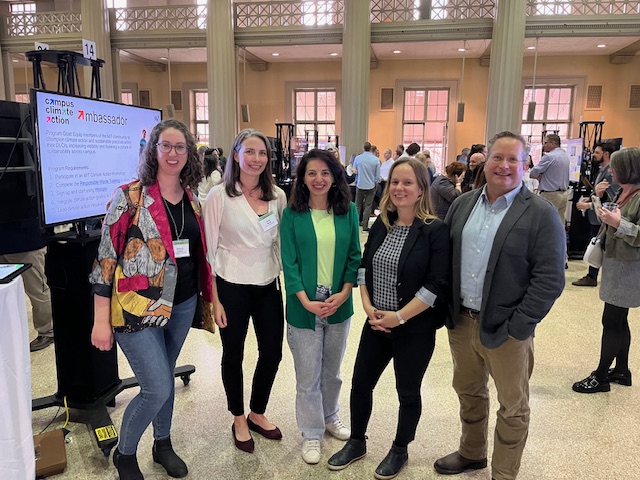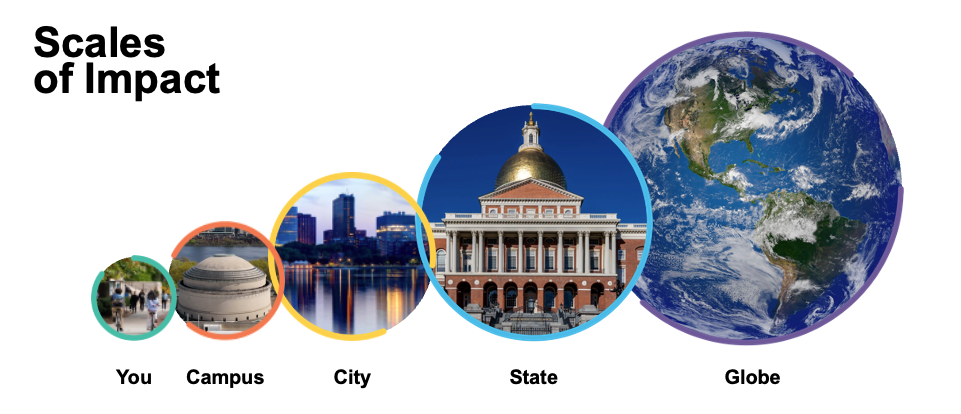
Interview with Climate Action & Sustainability in Higher Education Program Visitor Behice Pehlivan, PhD

Behice Pehlivan, PhD is the Gender Equality Coordinator of Koç University located in Istanbul, Turkey and the first visitor as part of the Climate Action & Sustainability in Higher Education Program. Pehlivan is working to establish a new sustainability office at Koç University and applied to the Climate Action & Sustainability in Higher Education Program to learn from MIT’s structure and approach to a more sustainable campus.
What interested you about the MIT Office of Sustainability - Climate Action & Sustainability in Higher Education Program?
I want to learn from the best. That was my main motivation. MIT has a way of combining cutting-edge technology and engineering with curiosity and creativity. This is a kind of institutional culture that I've been observing. I was particularly interested in how this culture reflected on administrative offices and especially sustainability work. How did you materialize this culture in your work? I was quite curious about that.
What were some of your biggest lessons-learned/ what was of most interest to you?
I'm fascinated by the sheer human dedication and specialized expertise behind this magnificent work that has been developed over the last 10 years. It was impressive to witness with my own eyes the curiosity, dedication, and expertise in the MITOS staff. I learned a lot about how intentional the office has been in their interaction with researchers and students. MITOS has a structured way of working with students, directing them toward specific goals but also giving them freedom.
I also very much like that idea of the scales of impact approach to sustainability that connects individual to global level, and it is not just words but materialized in the work of the office. I witnessed that and it was quite a lesson for me. And also, this very program [the Scaling Climate Action & Sustainability in Higher Education Program] is kind of an example of how you materialize the scales of impact approach, adding an important layer with global higher education engagements and sharing your experience and best practices on a global level.
What did you learn that surprised you?
Well, first I was incredibly surprised that black plastics are not recycled because of their color and the limitations of recycling machinery. I learned this from a workshop I attended with the Math Department.
Also, MIT’s work with flood mapping was incredible. It was so inspiring to hear the whole story, including the flooding simulations, and how that single project brought together academic expertise, administrative capability, city-level policymaking, and public engagement. I think it's one of the best practices of how universities can produce synergy regarding real sustainable work on the ground. It was so inspiring to hear the whole story, including the flooding simulations, and how that one project brought together academic expertise, administrative capability, city-level policymaking, and public engagement.

What will you take back with you to your work? How will your visit influence the work at your university?
In establishing this office, it's very timely for me to learn these best practices. First, I will take back the warmth, dedication, creativity, expertise, and ambition that Julie and her team put into creating this well-functioning mechanism. I will take back the data architecture that was built for sustainability work in the office. It was stellar, and it's so timely for me to get inspired from that as I'm establishing this new office from scratch. Also, I will take back the approach to engaging with students and researchers, mobilizing academic work for sustainability on the ground and creating real change in sustainability by engaging those actors.


